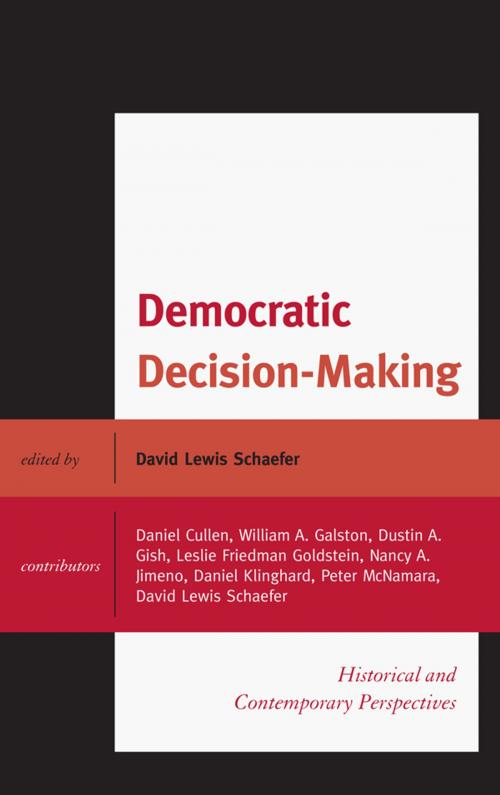Democratic Decision-Making
Historical and Contemporary Perspectives
Nonfiction, Social & Cultural Studies, Political Science, Government, Civics, Democracy| Author: | ISBN: | 9780739142080 | |
| Publisher: | Lexington Books | Publication: | February 20, 2012 |
| Imprint: | Lexington Books | Language: | English |
| Author: | |
| ISBN: | 9780739142080 |
| Publisher: | Lexington Books |
| Publication: | February 20, 2012 |
| Imprint: | Lexington Books |
| Language: | English |
Democratic Decision-Making: Historical and Contemporary Perspectives contains eight essays by political scientists addressing various aspects of the democratic decision-making process. The book is divided into four parts: democratic statesmanship, the extent to which limitations of the democratic principle of majority rule are desirable, the contemporary doctrine of “deliberative democracy,” and informal modes of democratic decision-making.
Under these four headings, the contributors discuss a wide variety of issues, including the practice of “political opportunism” by such statesmen as Hamilton and Madison; the historical development of legal restraints on democracy in America ranging from judicial review (during the colonial period) to the filibuster; the operation of classical Athenian democracy, the defects of which may have been exaggerated by the American Founders; the significance of the reflections of Tammany Hall boss George Washington Plunkitt for the development of the American party system; the relation of deliberative-democracy theory to the thought of Rousseau; and the means by which cooperative land-use agreements have been arrived at in California, eliciting the voluntary consent of the affected parties instead of relying on judicial or bureaucratic dictates. The book is well-suited for use in courses on American political thought, democratic theory, American political development, and related subjects.
Democratic Decision-Making: Historical and Contemporary Perspectives contains eight essays by political scientists addressing various aspects of the democratic decision-making process. The book is divided into four parts: democratic statesmanship, the extent to which limitations of the democratic principle of majority rule are desirable, the contemporary doctrine of “deliberative democracy,” and informal modes of democratic decision-making.
Under these four headings, the contributors discuss a wide variety of issues, including the practice of “political opportunism” by such statesmen as Hamilton and Madison; the historical development of legal restraints on democracy in America ranging from judicial review (during the colonial period) to the filibuster; the operation of classical Athenian democracy, the defects of which may have been exaggerated by the American Founders; the significance of the reflections of Tammany Hall boss George Washington Plunkitt for the development of the American party system; the relation of deliberative-democracy theory to the thought of Rousseau; and the means by which cooperative land-use agreements have been arrived at in California, eliciting the voluntary consent of the affected parties instead of relying on judicial or bureaucratic dictates. The book is well-suited for use in courses on American political thought, democratic theory, American political development, and related subjects.















